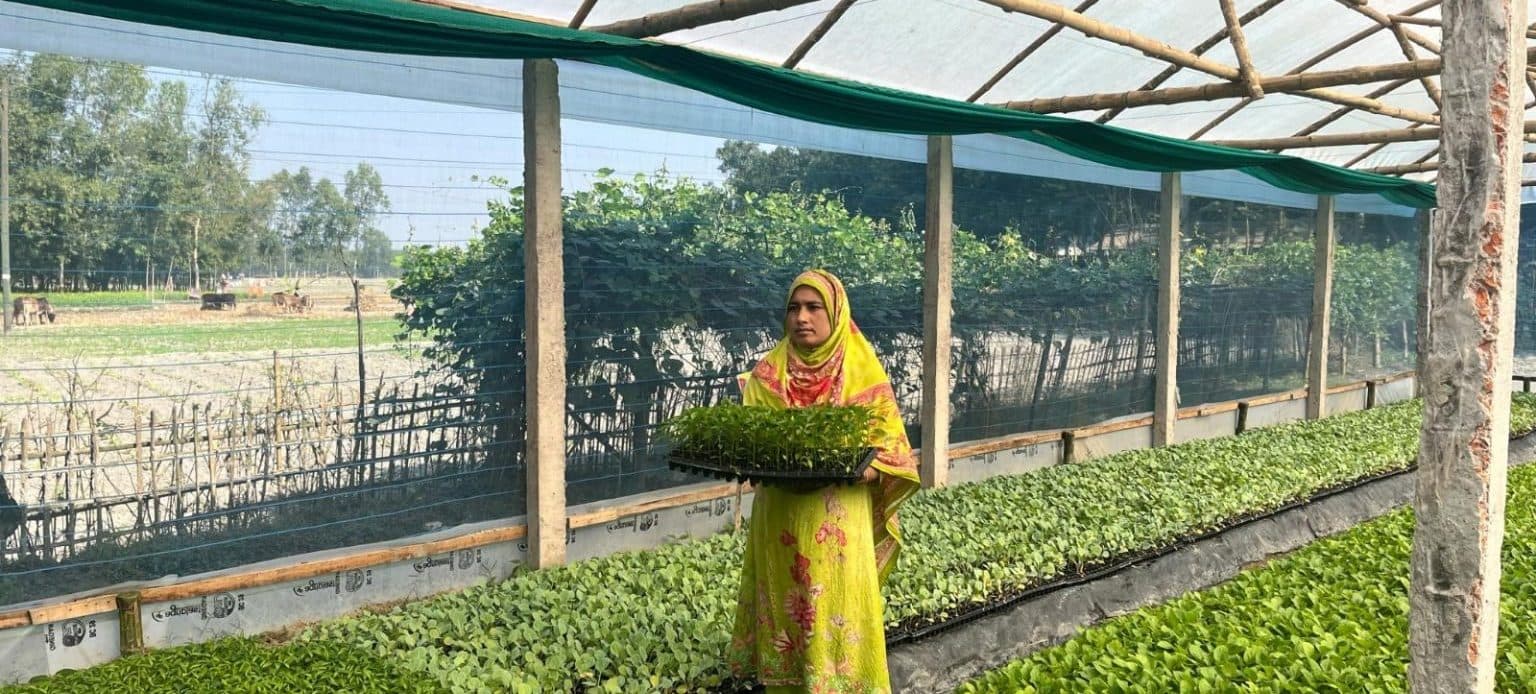Agri-Entrepreneurship

The power of groups and services: Farmers‘ Hubs
Our Farmers’ Hubs program started in Bangladesh and later, spread elsewhere. The hubs offer multiple services to local farmers. Each is designed to run as a profitable business, and also boosts its clients’ income.
Smallholders with small pieces of land and poor agronomic knowledge have been continuing traditional agriculture by heredity. Due to the small basket size of input requirement and discrete production volume they cannot take the attention of large and quality ago business companies and traders. Besides, to get multiple services, they need to reach different service providers (eg. input retailers or nursery owners for seed/seedling, fertilizer, crop protection, etc.; Agri extension officers or fellow farmers for Agri advice, mechanization service providers/sellers for machines; local traders or market for selling produce, etc.) where there is no coherence among the services or service providers.
In this context, SAF (formerly Syngenta Foundation for Sustainable Agriculture) has designed an inclusive business model called “Farmers’ Hub” which is a one-stop commercial service platform creating smallholders’ access to quality inputs, Agri machines, markets, finance, and knowledge. It helps increase farm productivity and ensures fair prices.
The Hubs are close to farming zones and transport infrastructure, but normally far from formal markets. The Hubs serve 500-1000 farmers each, linking them to 10-20 buyers. These include medium to large traders, processors, and export companies. The Hubs are owned by rural entrepreneurs, agribusiness suppliers, or farmers’ cooperatives. Fees for the services provide a regular flow of income. As well as selling produce, smallholders go to their Hub to access quality seedlings, farm machinery, post-harvest handling equipment, marketing information, and agronomic advice. The overall effect is a rise in farm yields and income. Buyers benefit from product aggregation and reliable supply.
Different external and internal studies show that the Hubs are a good vehicle for technology transfer and service delivery to small and marginal farmers in remote regions. Organizing smallholders this way can greatly facilitate the production and collection of quality crops from disadvantaged areas. It also improves compliance with quality standards. This is not only true in Bangladesh. Building on the success there, our team in Senegal launched its own Farmers’ Hubs at the end of 2017. In the last 3 years, SAF (formerly SFSA) conducted a pilot phase for the Farmers’ Hub model in Indonesia, Kenya, Mali, and Nigeria. In March 2018, we also added a digital platform, the e-farmers hub to support the offer of the program. Besides this, this model is scaled up in different countries in Franchise or Network Manager concepts.

The Farmers’ Hub model
Farmers’ Hub operators provide various services for fees. They earn 60-80% of their revenue by trading farmers’ products, 10-20% from farm inputs sales, and 0-5% for machinery rental and post-harvest handling. Their farmer training and advice is free.
Disclaimer: This portfolio description was originally written by SFSA and has been modified and adapted here.
Share